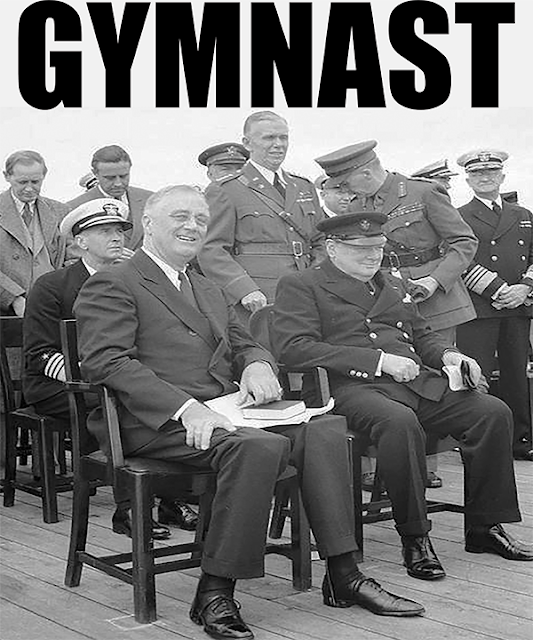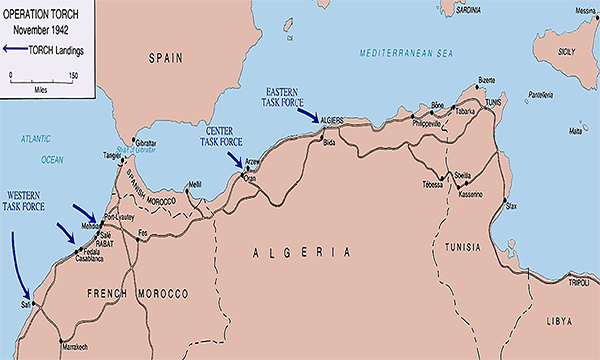Global strategy is too important to be left to generals.
Planning for military conflict is just one factor among
many that need to be considered by leaders to win
the war.
President Roosevelt's top military commanders were
strenuously promoting an Allied assault on France
before the end of 1942, within a year of the bombing
of Pearl Harbor. The proposed invasion would be
of a size and complexity that occurred on D-Day,
three years later.
Churchill argued the plan was ambitious beyond its means.
We hadn't the ships, tanks and airplanes needed for this
undertaking. No one had any firm ideas, let alone
experience, at how to conduct an amphibious assault.
Britain and Canada would have to lead the way because
most of the Yanks were in basic training. The US Army
would grow a thousand percent by the end of the year.
Nearly everyone was busy learning their job.
Hitler would welcome this half-baked military effort,
pulverizing Allied formations as they land.
The resulting disaster would set back the opening
of a second front in France a couple of years
and possibly leave Stalin wondering whether it
would be better to settle with the Nazis than to put
his faith in an incompetent ally.
Roosevelt was in agreement with Churchill.
Gymnast was Roosevelt's plan for a second front
in North Africa as opposed to taking Germany
head on in Europe. By attacking the French in
Vichy Morocco and Algeria, the Americans would
learn from dealing with a less formidable enemy.
In fact, the French might choose not to fight at all.
US troops were untested and definitely not ready
for prime time. While German generals spent years
brooding over how to slice and dice their opposition,
the US Army was busy chasing Poncho Villa around
the southern border with Mexico.
US troops would get their baptism of fire at a mountain
pass named Kasserine. Rommel pretty well torched
the American effort to hold him back. The loss was a
bitter humiliation for Eisenhower's men. But it wasn't
the catastrophe that would have occurred on the shores
of Normandy. It was a valuable teaching lesson.
Adjustments were made in personnel.
General George S. Patton was given a division of tanks
to command.
* * * * *
OVER EASY








No comments:
Post a Comment